Interview: Composer Seabourne Not Afraid to Speak his Mind
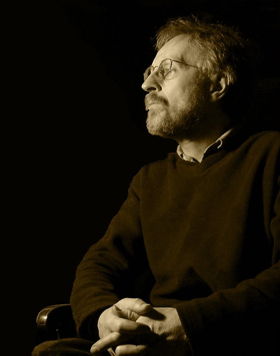
British composer Peter Seabourne's accomplishments are so many and so varied that one can only speculate when he has found time for so-called "normal" pursuits such as eating and sleeping. Small wonder that he felt obligated to take a 12-year hiatus in the late 1980s in the midst of his flurry of compositional activity.
Since then the UK-based Seabourne has doubled his compositional efforts, garnering numerous commissions and awards in international competitions for his solo, chamber and orchestral works and song cycles. His compositions show a combination of late 20th century lyricism and Bergian dissonance: at times melodic, at times opening a window into the angst of a composer of our time. I recently caught up with him to find out more about his background and works.
Erica Miner: What events in your childhood led to your passion for music and desire to compose?
Peter Seabourne: I was born in 1960. At the age of ten I moved to a large farmhouse to live with my grandmother. Both the isolation and her support fostered my love of music and a passion for composing. In 1980 I won a place at Clare College, Cambridge, studying composition with Robin Holloway, an inspirational figure, who tragically seems to have been ignored and forgotten. This is quite shocking as he has been commissioned multiple times by the proms, English National Opera, San Francisco Symphony, LSO, CBSO with Rattle and more. He is also a journalist, writing a music column for The Spectator for 22 years, has written three books on music, and taught a whole generation of leading British composers as professor at Cambridge-Weir, Adès, Watkins, Benjamin and others. He is woefully under-recorded for a composer of his stature.
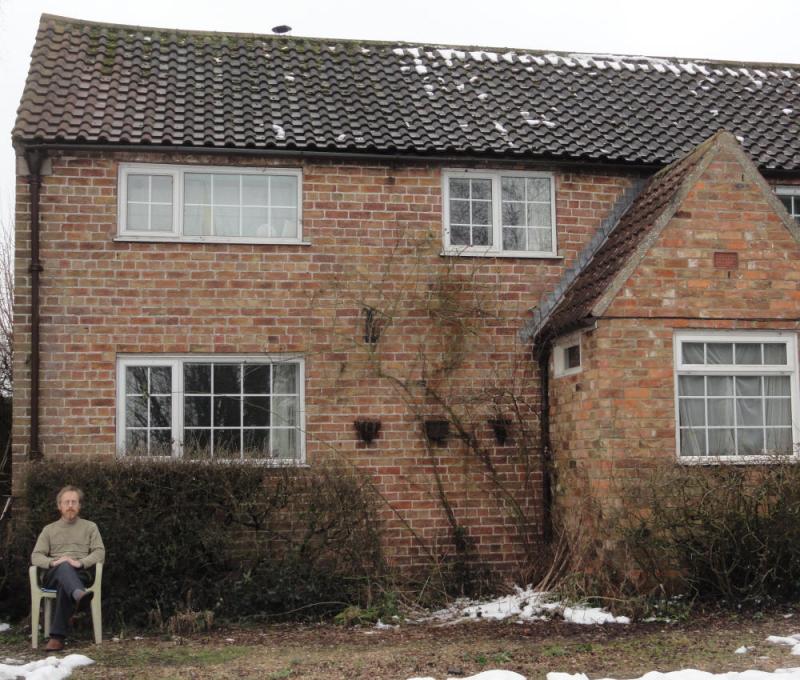 EM: It sounds as if he was an enormous influence for you.
EM: It sounds as if he was an enormous influence for you.
PS: I owe him a huge amount, both compositionally and philosophically. Though initially there was little stylistic common ground, some of his idiosyncratic single-mindedness was already reflected in the student pieces I produced. Jabberwocky (1984) was the first success, given by the group Endymion at the Camden Festival.
EM: What was your next step?
PS: Completing my degree in Music, I took a DPhil in Composition at York University with David Blake. A great number of works, varied in style and approach, were produced. Imber Song was a joint winner of the RVW Composition Prize and Nocturnes was awarded 2nd place in the Britten Prize in 1986. Performances followed on London's South Bank, with many more in festivals across the country. Fragilitá, one of five pieces selected by the Society for the Promotion of New Music, was performed at the Institute for Contemporary Arts in London in 1993.
EM: How would you describe your compositional style and other influences?
PS: I would say my work has roots in the neo-Romantic tradition. Among my major compositional influences are, first and foremost the works of Janá?ek, then Mahler, Ravel, Prokofiev, Sibelius, and of course Robin Holloway. There is some kinship with other living composers such as Fabian Müller, Ståle Kleiberg, Judith Weir and David Matthews.
EM: That is quite a variety. I definitely can hear the influence of Janá?ek in your 3rd Symphony. But there are certain uniquely distinctive characteristics in your music as well.
PS: Yes, especially rhythmically. In particular the piano is very dear to me. It was my route back into composing after I had fallen silent for 12 years-and indeed disowned everything written before that time. Since 2001 I have worked with many incredible pianists, which has been one of life's great joys, and I have learnt so much from it, and them! Starting to write these little piano pieces back in 2001 helped me to find my musical persona and refine my way of thinking.
EM: What is your take on composition vis-à-vis the avant garde?
PS: Overall, I have a feeling of increasing disconnection from much of the mid-late 20th century avant garde. Though many composers have now emerged to find another way, this black hole still frames the mindsets of promoters and broadcasters. Do not misunderstand me: I am not arguing for either populism or stagnant ultra-conservativism. But the legacy of much of the 20th century has been terrible for present day composers, indeed serious music as a whole. A generation of performers and audiences has been totally disengaged from the music of its own age because of it; perhaps the first time in musical history that this has been so. Much of the arts establishment of my own country seems to demand that composers jump though politically correct hoops to write works that are doomed to a cycle of première and oblivion. Thank goodness there are still parts of Europe where culture runs deeper! In Finland, for example, one can still "just" write a symphony...and be paid for it!
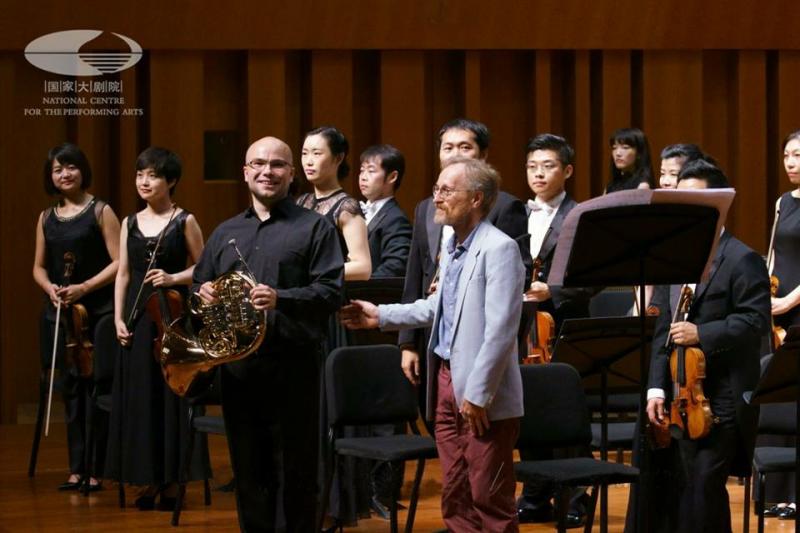 EM: Are you comfortable with acknowledging your admiration for composers that preceded you who are not part of the so-called contemporary scene?
EM: Are you comfortable with acknowledging your admiration for composers that preceded you who are not part of the so-called contemporary scene?
PS: I embrace my musical heritage, even bits that I am not supposed to like (try mentioning Poulenc or Rachmaninov in new music circles and still witness the same reaction!). For me, warmth and communication are not signs of "cowardice in the face of the enemy." Ultimately, if any serious music is to survive, we are in the hands of future performers who will want to play it, and future audience members who will pay to hear it. I could go on...but beware of composers who talk too much!
EM: I admire your commitment to your beliefs.
PS: The great French painter Toulouse-Lautrec once said, "In our time there are many artists who do something because it is new...they see their value and their justification in this newness. They are deceiving themselves...novelty is seldom the essential. (My work) has to do with one thing only...making a subject better from its intrinsic nature."
EM: Can you describe your work process, your composer's world?
PS: I think Mozart expressed it best: "When I am completely myself, entirely alone, it is on such occasions that my ideas flow best and most abundantly. Whence and how these come I know not." I could not have described it better.
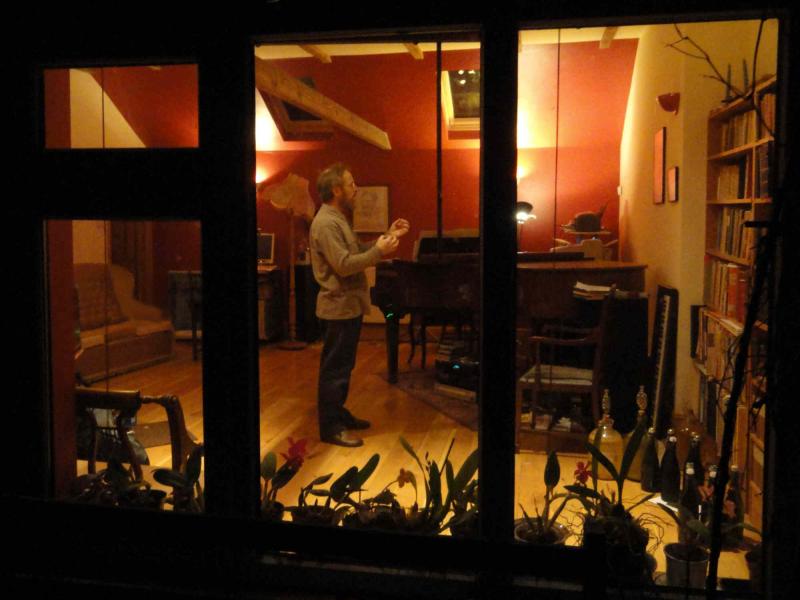 EM: As a writer, I totally relate to that. What are some of your most recent works that you feel deserve mention?
EM: As a writer, I totally relate to that. What are some of your most recent works that you feel deserve mention?
PS: My solo piano series Steps, which consists of six large volumes. Five are cycles, the other a collection. All except the new 6th are on CD with many excellent reviews in leading journals like Gramophone, Piano News, and International Piano and have been quite widely performed. The six Steps sets are a sort of backbone to my musical output. I call them my "traveling companion" and I see the project as having a long way yet to run. It has also seeded the rest of my output: five concerti, four symphonies, many chamber works and song sets. Symphony of Roses (inspired by Yeats poems) has been broadcast twice in Switzerland and also Estonia and Portugal. Also my Violin Concerto below and the shorter work Tu Sospiri?
EM: What is coming up next for you?
PS: Volume 6 of Steps will be recorded next year by the great Konstantin Lifschitz, for whom it was written, along with the Bach Toccatas. Prior to that my new horn/piano rhapsody, The Black Pegasus, will be premiered in Osaka by my great friend and champion Ondrej Vrabec. I have been commissioned to write a short viola/piano work by a concert society in Germany for premiere next year, and I believe I am about to be asked for a double concerto for cello, piano and strings, also in Germany. Also underway are a piano for Avant Trio, and my 3rd Piano Concerto. I have also "mentally begun" the next Steps cycle, No.7. My longer-term plan is to continue my symphony cycle, so I am pining to get on and write the 5th if somebody would like to commission it! I feel my voice and musical landscape is now quite settled. It's a matter of finding the time to complete the long list of pieces I still have in me.
EM: I see the wheels continue to turn! Thanks so very much, Peter, for sharing your insights with us.
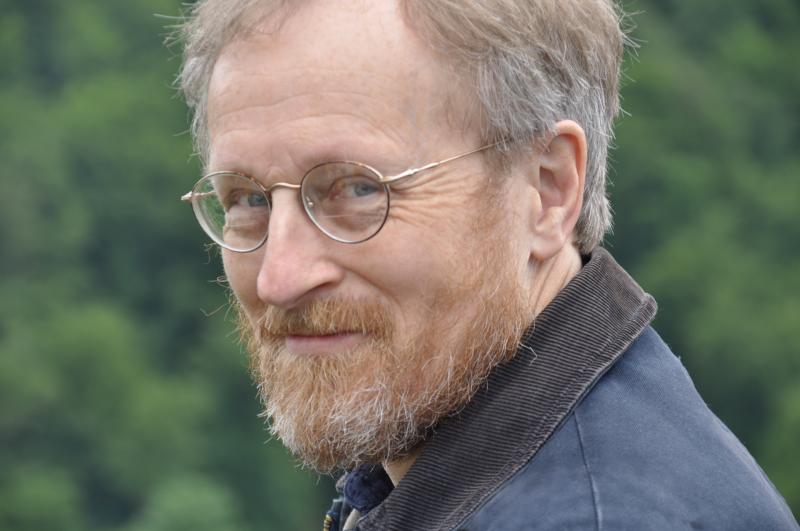
A list of Peter Seabourne's works can be found at https://en.wikipedia.org/wiki/Peter_Seabourne and videos on his website www.peterseabourne.com.
Photo credits: courtesy of the artist.
Comments

Videos

